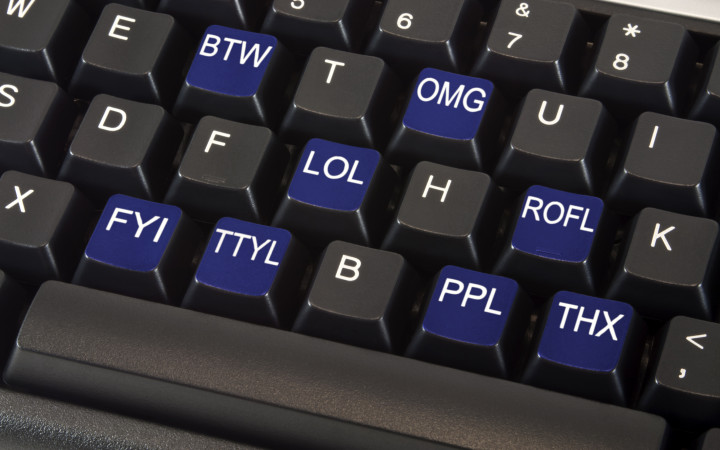Today’s Wonder of the Day was inspired by Gia. Gia Wonders, “How did people come up with things like LOL” Thanks for WONDERing with us, Gia!
LOL! BRB! Do you already know what those things mean? They mean “laughing out loud” and “be right back.” If you recognized them, you might know a thing or two about texting. After all, you’re already familiar with examples of SMS language!
What is SMS language? It includes any abbreviations and slang used to send brief messages through mobile phones. They’re also known as textspeak, textese, txt-speak, txtese, chatspeak, txtspk, or texting language.
SMS itself is an abbreviation. Its longer name is “short message service.” In addition to text messages, SMS language is also often used on the Internet in emails and social media.
The use of SMS language has exploded in the past several years. But it’s not a new invention. People have been looking for ways to shorten long phrases and communicate more quickly for hundreds of years.
For example, many SMS language phrases are similar to those used long ago when sending telegraph messages. People sending telegraphs were charged by the word. They looked for ways to shorten their messages to save money.
SMS language includes all different sorts of abbreviations. They may consist of numbers and letters. For example, “omw” means “on my way.” Likewise, “l8r” stands for the word “later.”
The goal of SMS language is to use the fewest number of characters possible. It also helps users to type less and communicate faster. Often, SMS language messages can mean more than one thing. Users must interpret the intended meaning from the context of the message.
One side effect of SMS language is that punctuation, grammar, and capitalization are usually ignored. This has led some people to be critical of it. They fear that using SMS language too much might have a negative effect on language skills.
Those fears may be unfounded, though. Both David Crystal and Dr. Nanagh Kemp have studied SMS language. They found that its use actually coincides with a good grasp of grammar and phonetics. Their studies show that SMS language may lead to an overall improvement in literacy levels.
Do you use SMS language? What other examples of it can you think of? It can definitely help people communicate more quickly!
Standards: CCRA.L.3, CCRA.L.6, CCRA.R.1, CCRA.R.2, CCRA.R.4, CCRA.R.10, CCRA.SL.1




